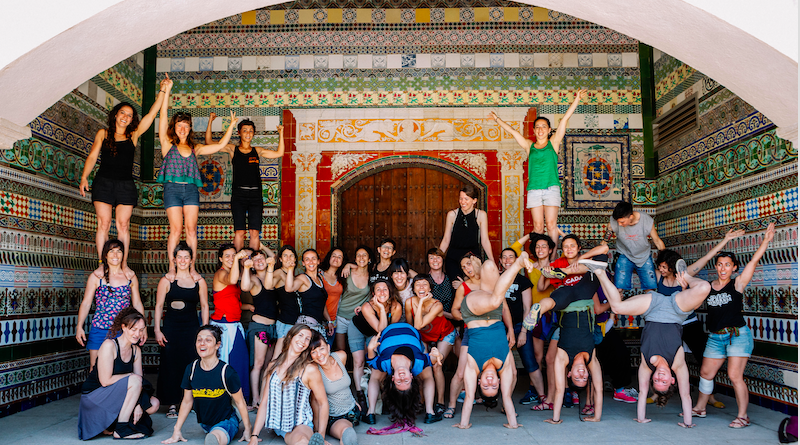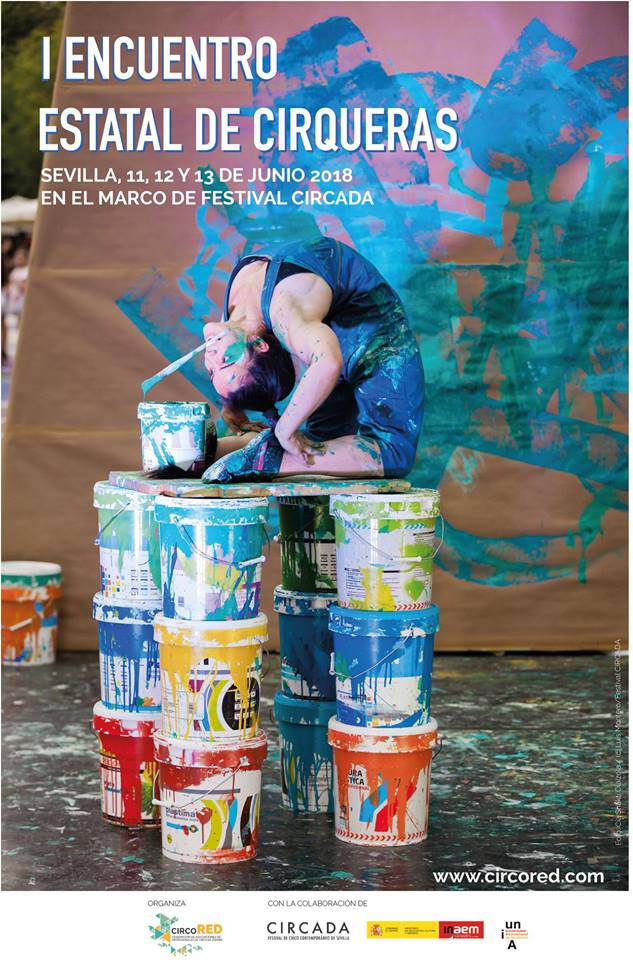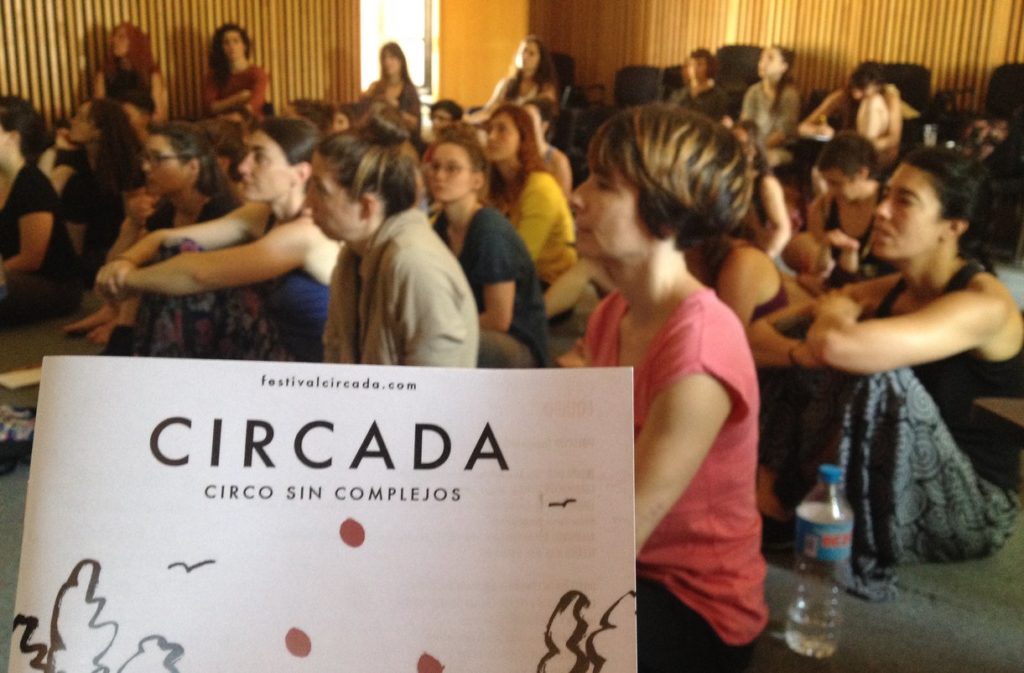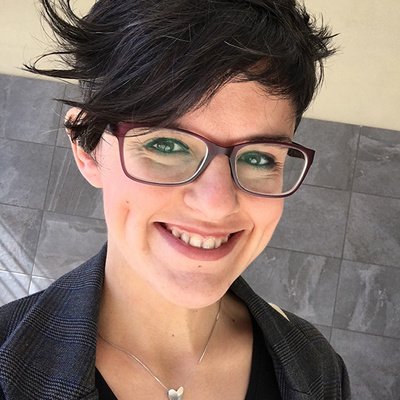Women in Spanish Circus Take a Step Forward on Gender Issues

Para leer este artículo en español, haga clic aquí.Last June, the first Women in Circus State Meeting was held in Seville (Spain). Thanks to the support of the CircoRED Federation and with the collaboration of Circada Festival and the International University of Andalusia, fifty professionals gathered to reflect and debate about the gender issue in the circus world.
Through a participatory methodology and in an environment of trust and security, the participants advanced in understanding and mutual recognition of issues, exposing concrete cases, doubts, and data. Through this approach, they were able to naturally build the bases of work on which to be able to continue advancing the cause for gender equality in circus in the future, by identifying problems and basic needs.

The meeting was organized over three days – from June 11th to 13th , the first day being dedicated to carrying out trust dynamics for the group and a brief round of presentations. On the second day, intensive work began with one of the central themes: empowerment and lack of visibility. From the first moment, a good number of structural problems showed up. Fears, insecurities, or the invisible backpack ( defined as all of those responsibilities and burdens that women assume as issues inherent to their gender) are some features that were revealed as common to all the participants.
One phrase became an accurate summary of the general feeling of the women when practicing their art form: “Sorry for not making it perfect”, a feeling which many admit emerges with a sense of panic when working with others in our profession, a sort of self-imposed deference we feel compelled to extend by way of our socialization. As this was discussed, it became clear how important it was that all of the women felt the need to have a collective support system to face any potential failure. The need to revise the conception of power and the parameters on which our identity is constructed, as well as the importance of awareness as a collective, was thus explored.
As a complement to this exchange of ideas around empowerment, a round of presentations of personal works was held. Very diverse works of artistic creation, research, and social circus were presented, all of which served to illustrate in a more concrete way all those needs and problems to be faced, as well as all the potential and creativity of the speakers. These short presentations were entitled Let’s talk about our weaknesses to find our strengths and were really inspiring for the audience.The contents had three thematic blocks:cultural managements and researching projects by Ilaria Cieri, Itsaso Iribarren and María Muñoz; female artistic projects by Elisabetta Valci and María Muñoz (Las Primas), Shakti Olaizola and Txus Buffa; and social projects by Alba Cornella, Sabrina Catalán Nuria Calatayud and Elena Ludwing.
Motherhood, Conciliation & Sexual Violence, Urgent Problems to be Faced

The afternoon session of the second day was focused on care and motherhood. If in society these issues are complex, in the case of the circus they are further complicated because of the very characteristics of this work environment. Obviously, the first point that became clear was the need to stop circumscribing the issue of care to the feminine sphere; a need that goes beyond caregiving and that also implies extending the concept of “taking care of oneself”, extending it to the individual level, but also weaving a network of collective support.
Regarding motherhood, the logistical problems that arise for a woman in circus take place not only when she become a mother, but also just when she considers it. Some problems discussed include: some artists stop training and working to try to get pregnant; the way a pregnancy affects a professional company; how to manage the baby’s care when you go back to work; how much it costs to recover one’s form and technique after a delivery.
To all these questions it is necessary to add an important and specific conflict in Spain: the legal problems involving obtaining a low risk pregnancy for circus artists. While law is totally arbitrary, it leans towards recognizing the exercise of circus as an activity incompatible with a pregnancy and it leaves the woman at the mercy of totally different criteria depending on the region in which she lives. Other issues were also discussed, such as the right of women not to want to be mothers or the reality that they do not have to find personal fulfillment in the act of procreating.
Since conciliation was a central point in this debate, the organization of the meeting did not neglect this issue, instead it facilitated a caregiver for mothers who wanted to take of their children. This practice that should be generalized so that professionals can develop in different environments and contexts without having to give up motherhood or without having to make impossible compromises to fit both worlds.
The third and final day was dedicated to sexual violence, a particularly delicate problem in an area such as the circus, in which physical contact is an essential part of daily work. It became clear that, although the general tendency is to treat cases of abuse and harassment as exceptions, the reality is that for the collective it is perceived as an everyday experience. It was also clear, in the light of several experiences shared in the group, that there is bad management by institutions and collectives when there are cases of sexual violence in areas such as education or work. Probably this block was the most emotional and difficult of the whole meeting, but it was also revealed as one of the most important, as it is a question that is socially invisible, so it harder to approach with confidence and freedom.
Happily Moving Forward to the Next Meeting
In this way, the conclusions of this first meeting could not be more positive for the organization, composed by María Folguera, Andrea Pérez, Irene Poveda and Estitxu Sanchís. It laid the foundations to develop different lines of work around the three main issues and to create a gender commission in the CircoRED Federation to articulate the gender perspective in associations and circus projects at the state level.
Within these general conclusions, two important issues surfaced in the face of new meetings. On the one hand, the participants debated intensely on the suitability or not to allow male participants in future appointments, without reaching a clear consensus. Maintaining the non-mixed format guarantees the freedom and security necessary to address sensitive issues or avoid situations such as mansplaining or the tendency to monopolize the conversation on the part of cis men. However, the value was also noted of involving men to promote a much needed awareness, since it would provide them with an insider’s view of gender concerns.
Another issue that came to light on the closing day was a concern for the lack of general diversity in the meeting, as well as a conflict between the need to claim the fact of “being a woman” and the possible feeling of exclusion of different collectives that do not identify with this term (transgender and non-binary identities), which could result in the meetings having a reductionist character.
Finally, apart from all these issues, it is important to highlight how this one Women in Circus Meeting has served to strengthen the bonds of union among the participants: a real exercise of empowerment and feeling of community. Greta Marí, one of those participants, summed up her experience: “this meeting helped us to be aware of where women are in relation to the profesional circus sector, where we are going, our biggest problems and challenges and the need to look for solutions and answers together”. In Seville a tribe was born – a term coined by the participants themselves – wanting to fight and support each other. It’s the official baptism as a collective, because individually a group of women have discussed these issues in a closed group of Facebook since April 2017, focusing on debates that were precisely the germ of this meeting.
The next meeting already has a date, it will be in December 2018 in the framework of the CAU Festival of Granada (artistic direction by Rosa Colell), especially suitable as it is the only one specialized in Spain on the themes of gender and circus.
Feature photo courtesy of Luis Montero
Editor's Note: At StageLync, an international platform for the performing arts, we celebrate the diversity of our writers' backgrounds. We recognize and support their choice to use either American or British English in their articles, respecting their individual preferences and origins. This policy allows us to embrace a wide range of linguistic expressions, enriching our content and reflecting the global nature of our community.
🎧 Join us on the StageLync Podcast for inspiring stories from the world of performing arts! Tune in to hear from the creative minds who bring magic to life, both onstage and behind the scenes. 🎙️ 👉 Listen now!
